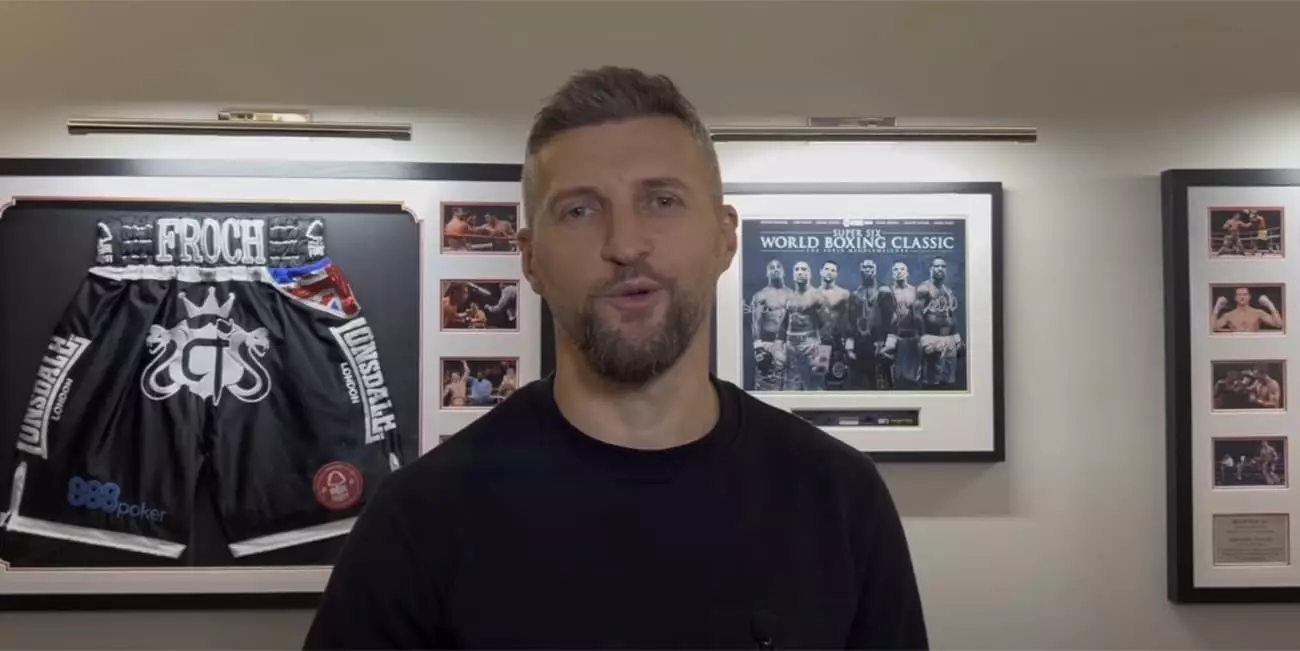In a surprising twist in the boxing landscape, Hall of Famer Carl Froch has expressed his willingness to return to the ring specifically to take on social media sensation Jake Paul. Froch, a former super middleweight champion with a decorated career, boldly stated that he would engage in this bout “for the sake of boxing.” One must ponder: is it truly for boxing’s integrity, or is it simply a strategic move to regain a share of the spotlight in an era where spectacle often overshadows skill?
Froch’s critique of Paul is as blunt as it is colorful. He refers to Paul as a “little b***h” and claims the YouTuber has no real capability to fight at a level that would matter in the boxing community. While one could argue that Froch’s invective may stem from a place of genuine concern for the sport’s reputation, it also raises questions about respect and legitimacy in boxing today. How can a fighter with Froch’s legacy reconcile his disdain for the spectacle that Paul represents?
Perception vs. Reality in Boxing
The dynamic between traditional boxing and the burgeoning influence of social media personalities reflects a significant transformation in how boxing is perceived and marketed. Froch’s comment that Paul “can’t fight and won’t fight anybody” resonates with long-time boxing aficionados who value skill, discipline, and the storied histories that genuine boxers bring. Yet, here lies the design flaw in Froch’s argument: Paul, whether one likes it or not, has managed to tap into a younger audience, transforming the “purity of boxing” into a multi-faceted entertainment event devoid of its previous gravitas.
Paul’s upcoming matchup with Julio Cesar Chavez Jr. serves as an example of this evolving narrative—a fight not merely about pugilistic merit but one that promises to draw significant viewership and generate hefty revenues. Does this not illustrate an evolution in the sport? Perhaps Froch is crying out in defense of boxing’s heritage while failing to embrace the inevitable shift in audience engagement.
Business Over Bravado
Analyzing Froch’s comments further, he maintains that Paul’s popularity rests on a shaky foundation, primarily reliant on pay-per-view numbers rather than an authentic fighter’s merit. Yet, isn’t that the hallmark of modern-day boxing? Boxing has long been a business before it became a sport, and Paul harnesses that truth better than many traditional fighters.
Froch doubts that Paul would be willing to step into the ring with him, suggesting that the influencer is merely a “money-making machine” who prefers to fight less challenging opponents for a profit. Froch’s disdain reflects a broader tension in boxing culture: the chasm between athletes who fought for pride and legacy versus those who chase after financial success through viral fame. Does this fracture hint at a coming reckoning within boxing, where skills may become secondary to marketability?
While Froch’s criticisms may seem harsh, they underline a more significant conversation about the future of boxing—balancing respect for tradition with the reality of commercial success. In an age where social influencers can command enormous followings, it’s imperative for established athletes like Froch to collaborate or adapt rather than disdain, lest they become relics of a sport growing ever more complex and multifaceted.


Leave a Reply